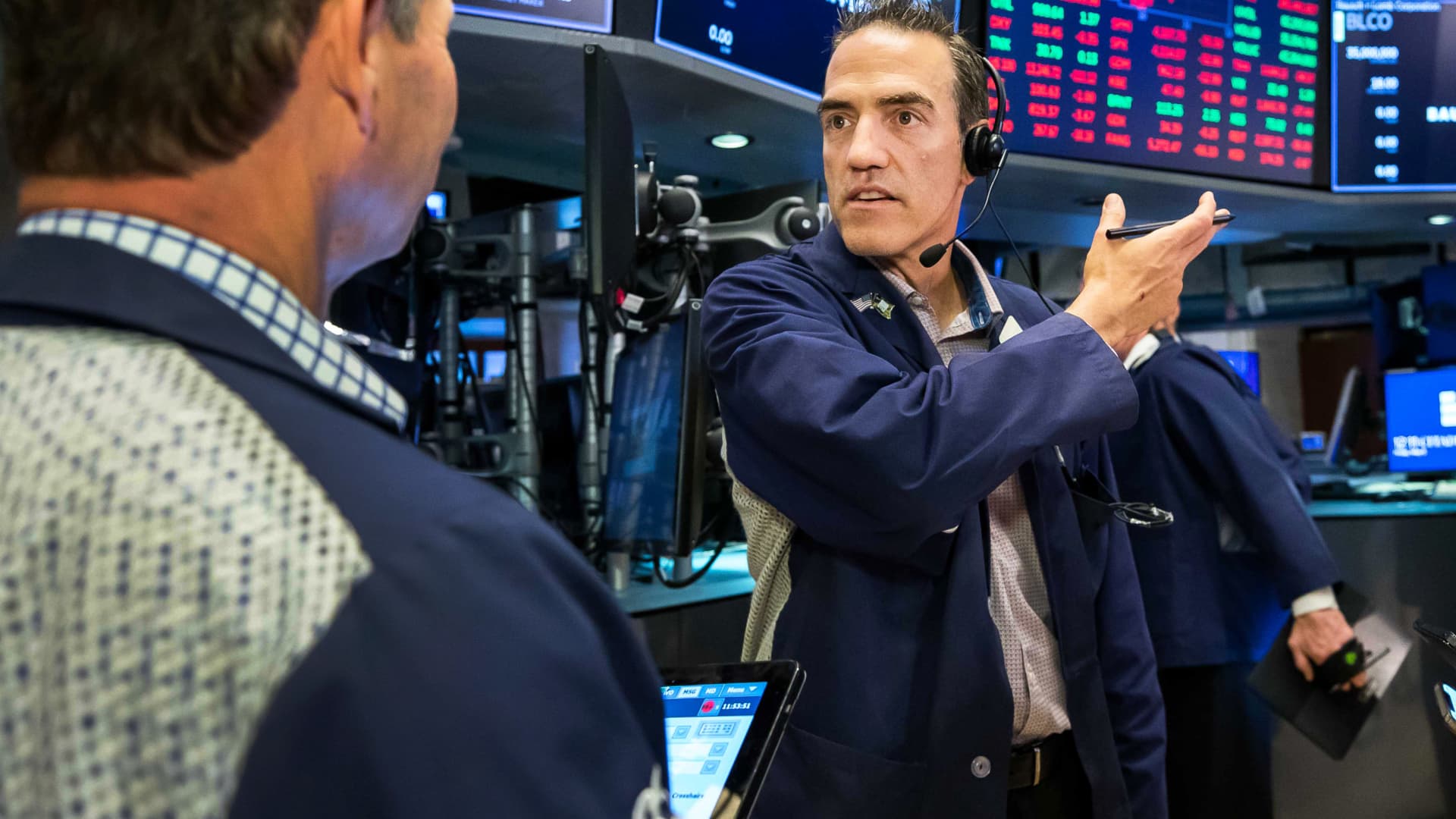Microsoft's hiring of staff from AI startup Inflection referred for UK merger probe
Microsoft's hiring of employees from artificial intelligence startup Inflection has been referred for an initial merger investigation in the U.K.

Mustafa Suleyman, co-founder and chief executive officer of Inflection AI UK Ltd., speaks at the World Economic Forum in Davos, Switzerland, on Jan. 18, 2024.
Stefan Wermuth | Bloomberg | Getty Images
LONDON — Microsoft's hiring of certain former employees from artificial intelligence startup Inflection has been referred for an initial merger investigation in the U.K.
Britain's Competition and Markets Authority said Tuesday that the hiring of Mustafa Suleyman, Inflection's co-founder, along with most of the startup's staff, should be assessed to decide whether it constitutes a merger under U.K. rules and therefore could result in less competition within the AI sector.
If it finds reason to investigate further, the CMA can refer the case for an in-depth inquiry, known as a "Phase 2" probe. The CMA said it would announce a decision on whether to refer the case for a Phase 2 investigation by Sept. 11.
A Microsoft spokesperson told CNBC in a statement Tuesday that it's "confident that the hiring of talent promotes competition and should not be treated as a merger. "
The spokesperson added the company would provide the CMA with the information it needs to complete its enquiries.
Microsoft announced in March it had hired Suleyman from Inflection, along with a number of other key employees at the firm.
Suleyman was appointed Microsoft's executive vice president and CEO of Microsoft AI, a newly formed unit of the company focused on its artificial intelligence products, including Copilot, the company's AI assistant, which it integrated into its Windows and Microsoft 365 software.
In addition to Suleyman's senior executive appointment, the Redmond, Washington-based tech giant selected Karen Simonyan to join the firm as its chief scientist, reporting to Suleyman.
Both Suleyman and Simonyan were former employees of DeepMind, the Google-owned AI lab.
Although the CMA didn't outline in its statement Tuesday how the deal could potentially undermine competition, the regulator has previously said it was assessing Microsoft's "entry into associated arrangements with Inflection," on top of its hiring of employees.
Reports from Reuters and The Wall Street Journal suggest that Microsoft paid $650 million in licensing fees to Inflection to resell Inflection's AI models via the Azure cloud platform.
For its part, Microsoft didn't unveil details of a licensing arrangement with Inflection when it announced the hiring of Inflection staffers, only that it took on "several members" of the company's 70-person team.

The regulator is seeking to determine whether this, along with certain hires from Inflection, resulted in a merger that could ultimately lead to a "substantial lessening of competition" in the AI space.
Earlier this year, the CMA said it was dropping a separate investigation into Microsoft's equity investment and partnership with the French AI startup Mistral.
The watchdog previously invited interested parties to comment on whether a separate deal Amazon made with Anthropic, a prominent AI startup, constitutes a merger.
The CMA has not yet said whether it will begin formally reviewing this arrangement.
Microsoft has invested more than $13 billion into OpenAI. Alongside committing funding to the company, Microsoft also uses OpenAI's GPT large language models to advance its own AI products, including its Copilot AI platform and Bing search engine.
And, up until last week, Microsoft had a nonvoting observer seat on OpenAI's board. However, this was reportedly a concern for regulators, who are investigating the deal over competition concerns.
Amazon has invested $4 billion into Anthropic, and offers the company's Claude foundation models on Amazon Bedrock, the company's own managed AI service.

 Kass
Kass 

























_2.jpg)






